You’re welcome to send your Live Wire news tips or suggestions to [email protected].
Today’s Live Wire: Quick Links
- Sarah Palin Goes Bonkers (in Orlando)
- Wikileaks: A Day in Hell
- Massive Oil Spotted in Gulf
- Remembering 240 Marines in Beirut
- Republicans More Engaged (Or Enraged)
- Dolly Parton Library, Haiti Version
- Ipad, circa 1885
- A Dissent on Freedom
- Two Cheers for America’s Religions
- Open Letter to Dean Cannon
- A Few Good Links
![]()
Live Wire Rewinds
![]()
Sarah Palin brought her panders, pincers and putty politics to Orlando earlier today (Saturday) to fuel up the 1,000-odd GOP volunteers who’ll be getting out their vote in less than two weeks. She invoked Ronald Reagan’s name a few times. That’s to be expected: Ronald Reagan, who started the United States on its addiction to debt and worry-free tax-cutting. But then she put in a plug for Bush. Both Bushes, actually: Jeb and George. From Mediaite: “One would have to research it, but this has to be one of the first times a nationally-recognized political personality brings up President Bush positively and receives cheers– not just because of the visceral disgust with Bush typical on the left, but because the garden-variety Tea Partier on the right has accepted that a major contributing factor to the current economic crisis was the overspending during the Bush years. Even more shocking than their cheering of President Bush was that of his specific policies– “the national security policy of ‘we win and you lose,’” as Palin put it. You’ve got to hand it to her: cheering on Bush foreign policy the day after the massive Wikileaks document dump on the Iraq War is a risky move, and, judging from the crowd, she pulled it off.”
Watch:
See Also:
- Will the Reemergence of George Bush Help or Hurt Democrats?
- Bill Maher Asks Levi Johnston: ‘Are You Using Condoms Now?’
- Sarah Palin’s Diva Universe
- Neo-Supremacy Chic: Glenn Beck And Sarah Palin’s Tea-Scalding of MLK
- Why Sarah Palin Will never Be President

The latest Wikileaks dump–of some 400,000 documents on the Iraq War–is getting plenty of coverage, rightly so: the argument for keeping these documents secrets is, like the war, bankrupt. It’s difficult to choose between coverage of the leaked documents, though as usual there’s a distance between American coverage (which is focusing on the legalities and morality of releasing the documents) as opposed to coverage in the rest of the world, which is focusing on what the documents show: a war more brutal than imagined or reported until now, at least in the mainstream press, and a brutality with no bounds. One of numerous examples stands out: Der Spiegel’s documentation of a single day in the war, Nov. 23, 2006, as it was seen by U.S. soldiers. “Of course,” Der Spiegel notes, “the logs don’t tell the entire story. The material posted by WikiLeaks is only made up of documents marked secret, not top secret. That means many major events are omitted. The true significance of the documents lies in the fact that they provide a previously unavailable view of the recent history of this war-torn country.” Read the day’s events.
See Also:
- Wikileaks’ Website
- Photo Gallery: Images of a Bloody War
- WikiLeaks Founder on the Run, Trailed by Notoriety
- WikiLeaks Iraq FAQs: What the Logs Really Say
Massive Oil Stretches Spotted in Gulf of Mexico
 From the New Orleans Times-Picayune: “Just three days after the U.S. Coast Guard admiral in charge of the BP oil spill cleanup declared little recoverable surface oil remained in the Gulf of Mexico, Louisiana fishers Friday found miles-long strings of weathered oil floating toward fragile marshes on the Mississippi River delta. The discovery, which comes as millions of birds begin moving toward the region in the fall migration, gave ammunition to groups that have insisted the government has overstated clean-up progress, and could force reclosure of key fishing areas only recently reopened. The oil was sighted in West Bay, which covers approximately 35 square miles of open water between Southwest Pass, the main shipping channel of the river, and Tiger Pass near Venice. Boat captains working the BP clean-up effort said they have been reporting large areas of surface oil off the delta for more than a week but have seen little response from BP or the Coast Guard, which is in charge of the clean-up. The captains said most of their sightings have occurred during stretches of calm weather, similar to what the area has experienced most of this week.” The full story.
From the New Orleans Times-Picayune: “Just three days after the U.S. Coast Guard admiral in charge of the BP oil spill cleanup declared little recoverable surface oil remained in the Gulf of Mexico, Louisiana fishers Friday found miles-long strings of weathered oil floating toward fragile marshes on the Mississippi River delta. The discovery, which comes as millions of birds begin moving toward the region in the fall migration, gave ammunition to groups that have insisted the government has overstated clean-up progress, and could force reclosure of key fishing areas only recently reopened. The oil was sighted in West Bay, which covers approximately 35 square miles of open water between Southwest Pass, the main shipping channel of the river, and Tiger Pass near Venice. Boat captains working the BP clean-up effort said they have been reporting large areas of surface oil off the delta for more than a week but have seen little response from BP or the Coast Guard, which is in charge of the clean-up. The captains said most of their sightings have occurred during stretches of calm weather, similar to what the area has experienced most of this week.” The full story.
Remembering 240 Marines and 70 French Paratroopers in Beirut
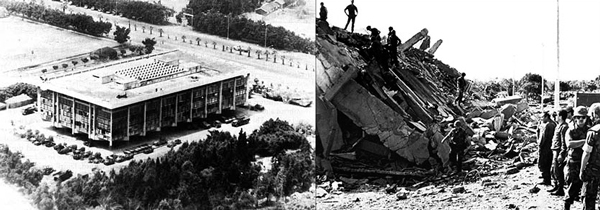
It was 6:20 the morning of Oct. 23, 1983. The guard at the gate would always remember the face of the truck driver: a smile on that face. Moments later, the man had driven the truck into the Marines’ Battalion Landing Team building near the Beirut airport, killing 241 soldiers–the single largest loss of life for the Marine Corps on a single day since World War II. Hezbollah didn’t exist as such back then. But this was a signature Hezbollah attack, the work of the Shiite terrorist Imad Mugnihah, himself assassinated in 2008 in Syria. The attack was replicated almost at the same time across town, where a truck bomber rammed into French paratroopers’ barracks, killing some 70 soldiers there. The Marines, the French paratroopers and an Italian contingent had been on a peacekeeping mission in Lebanon, a misguided attempt by the Reagan administration to put Lebanon back together after seven years of civil war. It was also a bloody rehearsal for Iraq: America discovered, too late, that Lebanon was not the sort of place that could be cobbled together. Not by Americans and Europeans, anyway. The Marines were soon “redeployed” the Mediterranean (a diplomatic way for the administration to say “retreat”) and the war went on for another seven years. The same sort of “redeployment” is taking place in Iraq, a country as fractured as Lebanon was, by similar divisions and similar indifference to resolving conflicts.
Watch a short clip of the Marines in Lebanon and the aftermath of the attack:
See Also:
- Hezbollah and the 1983 Bombing of the U.S. Marines Barracks in Beirut
- Imad Mugniyah: Profile of a Hezbollah Terrorist
- Honor the 241 Marines Massacred in Lebanon
Republicans More Engaged (Or Enraged)
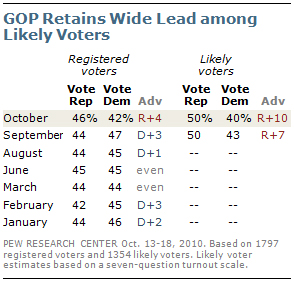 Political engagement is the flip side of political rage: people get involved because they’re angry. Because they want to shake things up. Because, as the man running a couple of years ago was saying, they want change. The tables have turned. This year it’s the Republicans who are fired up and enraged. The latest from the Pew Center: “As the midterm elections approach, there is every indication that voter turnout will be as high as in 2006, but unlike four years ago, Republicans — not Democrats — are now more engaged and enthusiastic about casting a ballot. The prospects for a GOP turnout advantage on Election Day are almost as favorable in the new Pew Research Center survey as they have been in all previous polls throughout the campaign. The new survey does show some signs of the Democrats awakening. A growing number of Democratic voters say they have given a lot of thought to the coming elections and more say they have been closely following campaign news. However, Republican engagement continues at record levels, dwarfing even improved Democratic showings on these indicators.
Political engagement is the flip side of political rage: people get involved because they’re angry. Because they want to shake things up. Because, as the man running a couple of years ago was saying, they want change. The tables have turned. This year it’s the Republicans who are fired up and enraged. The latest from the Pew Center: “As the midterm elections approach, there is every indication that voter turnout will be as high as in 2006, but unlike four years ago, Republicans — not Democrats — are now more engaged and enthusiastic about casting a ballot. The prospects for a GOP turnout advantage on Election Day are almost as favorable in the new Pew Research Center survey as they have been in all previous polls throughout the campaign. The new survey does show some signs of the Democrats awakening. A growing number of Democratic voters say they have given a lot of thought to the coming elections and more say they have been closely following campaign news. However, Republican engagement continues at record levels, dwarfing even improved Democratic showings on these indicators.
“Consequently, a considerably greater percentage of Republicans than Democrats still fall into the likely voter category. Moreover, the new survey shows that Democrats have lost ground among all voters: Currently, 46% of registered voters favor the Republican candidate in their district or lean Republican, while 42% favor the Democratic candidate or lean Democratic. In early September, 44% backed the Republican while 47% supported the Democratic candidate. When the current survey is narrowed to those most likely to vote, the GOP holds a double-digit advantage — 50% to 40%. In early September, Republicans held a seven-point lead among likely voters (50% to 43%).” The full report.
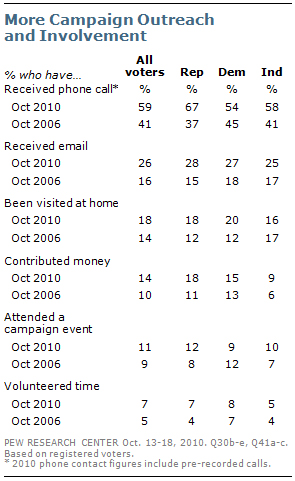
Dolly Parton Library, Haiti Earthquake Version
Compliments of UNESCO, one of the world’s best-kept secrets:
See Also:
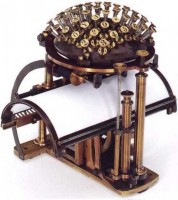 You really should click on the image to see it big and clear: an incredible contraption from the very same year the Civil War ended in the United States, which happens to be the very first typewriter ever produced commercially. From The New Yorker’s blog: “the Malling-Hansen Writing Ball, which was prototyped by the Danish inventor Rasmus Malling-Hansen in 1865. Photos of this fantastical machine (it looks like something you’d find in the Codex Seraphinianus, perhaps somewhere around this entry) have been popping up on various tech blogs intrigued by its steampunk aesthetic and poignant obsolescence. It’s a nostalgic reminder that the act of writing is one of imperfect translation from the mental to the physical realm: as Nietzsche typed of his own defective Writing Ball, “Our writing instruments contribute to our thoughts.” If all you had at your desk was a Smith-Corona electric typewriter of the kind William McKibben wrote about in this magazine in 1984 (its defining feature was the ability to erase up to two just-typed words), would you think twice before typing out that paragraph that just came to you in the shower? Now, of course, we have MS Word and “undo,” but the technology most of us use to record our thoughts is an old one: the QWERTY keyboard, which debuted in 1873, just three years after the Malling-Hansen Writing Ball entered production.” The full post.
You really should click on the image to see it big and clear: an incredible contraption from the very same year the Civil War ended in the United States, which happens to be the very first typewriter ever produced commercially. From The New Yorker’s blog: “the Malling-Hansen Writing Ball, which was prototyped by the Danish inventor Rasmus Malling-Hansen in 1865. Photos of this fantastical machine (it looks like something you’d find in the Codex Seraphinianus, perhaps somewhere around this entry) have been popping up on various tech blogs intrigued by its steampunk aesthetic and poignant obsolescence. It’s a nostalgic reminder that the act of writing is one of imperfect translation from the mental to the physical realm: as Nietzsche typed of his own defective Writing Ball, “Our writing instruments contribute to our thoughts.” If all you had at your desk was a Smith-Corona electric typewriter of the kind William McKibben wrote about in this magazine in 1984 (its defining feature was the ability to erase up to two just-typed words), would you think twice before typing out that paragraph that just came to you in the shower? Now, of course, we have MS Word and “undo,” but the technology most of us use to record our thoughts is an old one: the QWERTY keyboard, which debuted in 1873, just three years after the Malling-Hansen Writing Ball entered production.” The full post.
A Dissent on Franzen’s Freedom
Everyone is going nuts over Jonathan Franzen’s Freedom, so it’s nice to see a little contrarian in the mix. Again from the New Yorker’s blog, which we’d dutifully ignored until now for a reason: it could take up all our time if we’re not careful: “I don’t care if I’m banished from the in-crowd; I’m going to admit it anyway: I’m not in love with “Freedom,” so far. Much to the chagrin of two of my good friends, both of whom cried upon finishing it (and read it in the confines of a week), I’m not zipping through the almost six-hundred-page tome. I’m halfway through, and as my colleague Jon Michaud pointed out, having a large chunk of pages on the right-hand side can be a bit dismaying when the pages on the left took a fair amount of determination to get through. […] My biggest problem, though, is that I find Patty almost unbearable. […] I’ve thought about putting “Freedom” down, digging into another of the books on my literary bucket list. But Franzen’s latest has become a cultural phenomenon. His glasses were stolen and it was written about everywhere. He made up with Oprah. He was the first living novelist to be on the cover of Time magazine in a decade. He was snubbed for the National Book Award. Plus—surprise!—he’s an awe-inducing writer. There are sentences in “Freedom” that make me want to never attempt writing again—what’s the point, when there are people out there who write things like this:
Behind her, you could see the baby-encumbered errands; ahead of her, an afternoon of public radio, the Silver Palate Cookbook, cloth diapers, drywall compound, and latex paint; and then Goodnight Moon, then zinfandel. She was already fully the thing that was just starting to happen to the rest of the street.
See Also:
Two Cheers for America’s Religions
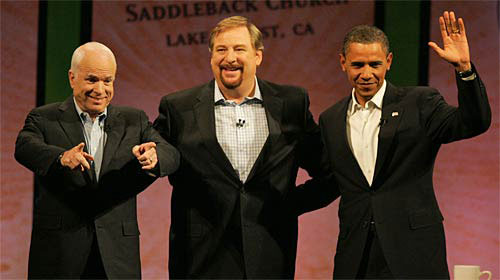
From a review of the just-released American Grace: How Religion Divides and Unites Us, by Robert D. Putnam and David E. Campbell: “[R]eligious Americans are more generous and active citizens than secular Americans, although George Washington and Alexis de Tocqueville might have predicted as much. Churchgoing Americans, it turns out, are twice as likely as their demographically matched secular neighbors to volunteer to help the needy and to be civically active. Not only do those in the most religious fifth of Americans give four times as high a proportion of their annual income to charity as those in the least religious fifth, but they give a higher proportion even to specifically secular causes. Neither this generosity nor this activism has to do with ideology. Cross-checking with other surveys, Putnam and Campbell conclude that on measures of generosity and civic engagement, religious liberals rank as high or higher than religious conservatives and higher than secular liberals.” […] “[H]aving family or friends of another religious tradition turns out to have a spillover effect, increasing acceptance of other traditions not represented in one’s immediate circle. But it is not yet clear whether this acceptance extends to “foreign” faiths such as Islam. And in attending to overall patterns, Putnam and Campbell may be underestimating the potential impact of militant minorities.” The full review.
See Also:
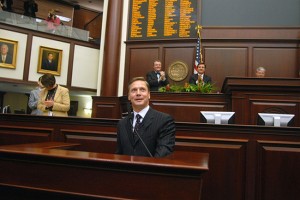 This first appeared in the comment section to a story on FlaglerLive about incoming Dean Cannon’s attempt to stop Florida government agencies from complying with federal health care reform. The letter is by Kip Durocher:
This first appeared in the comment section to a story on FlaglerLive about incoming Dean Cannon’s attempt to stop Florida government agencies from complying with federal health care reform. The letter is by Kip Durocher:
You portray yourself as an individual who has concerns for the voter/taxpayers of Florida. You seem to trumpet about will all your wind expounding this
At http://election.dos.state.fl.us/campaign-finance/contrib.asp
one can enter your name in the candidate search and come up with your donor list. $50,000.00 of this, which is 25% of your published total comes from what The State of Florida designates as “HEALTH CARE” organizations. Another $122,000.00 or almost 60% comes from “POLITICAL ORG.” I understand these to be PACs. Political action committees, which I understand are a way for people like you to get around the contribution limits. Your donation list has very few individual people listed. Do you not have many Florida citizen/taxpayers who donate to you? Maybe in your reply you could explain this further. Most of the PACs have medical sounding names and are from everywhere in the country not just Florida. Do you take money from lobby groups trying to influence Florida laws from outside the state?
I am rather uninformed on the political “game” but I understand the you have access to “SOFT MONEY”, this is money that is somehow unaccountable or untraceable, something of that nature. Could you explain further on this?
” Cannon singled out the Office of Insurance Regulation’s work on a requirement that insurers spend most of the premium dollar on providing care .”
Do you have a problem with making giant insurance companies pay more of the premiums they collect to taxpayer healthcare than to huge bonus money to themselves?
Due to the large amount of money you have been given by the HEALTH CARE INDUSTRY AND HEALTH LOBBY GROUPS do you not feel beholden or “in their pockets” so to speak?
Do you feel that you can be objective in helping the taxpayers of Florida on these important subjects.
I have sent a copy of this open letter to your re-election website at:
http://www.deancannon.com/contact-us/
You do not need to personally reply or email me, a reply in this forum will be fine.
Thank you for your prompt assistance on these matters.
Kip Durocher
See Also:
- Health Care Deformed: Florida’s Incoming House Speaker Defies Federal Law
- US To Florida: Health Care Opt-Out Is Not an Option
- Immigration and lawless courts
- Is there really such a thing as delicious, healthy, guilt-free chocolate?
- Number of Bank Failures: 2010 about to surpass 2009
- Why is Saudi Arabia stockpiling US weapons?
- Ninety years after publication, Sinclair Lewis’s Main Street still resonates with readers




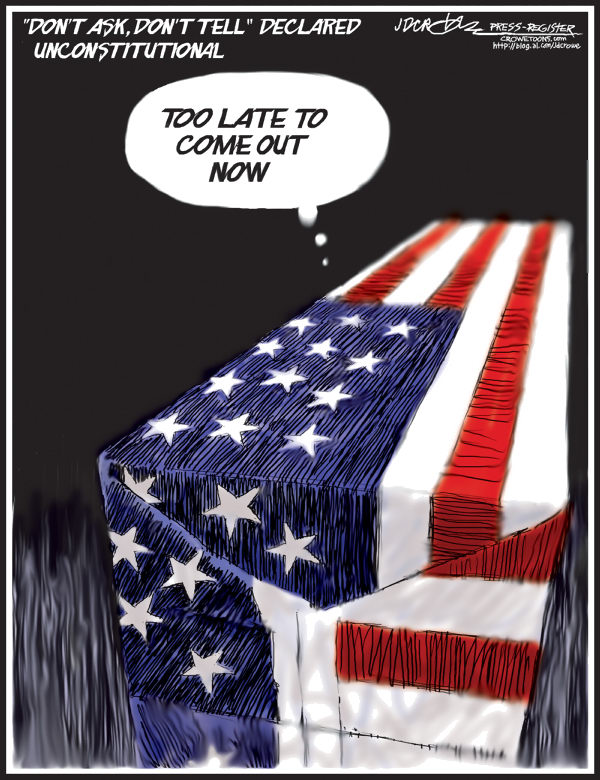

























Leave a Reply